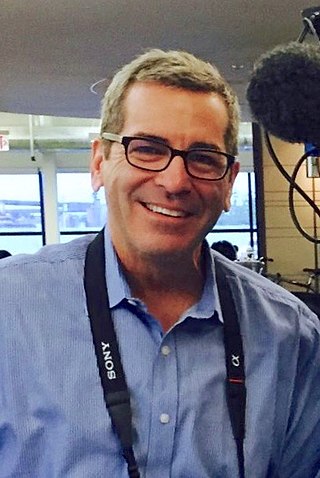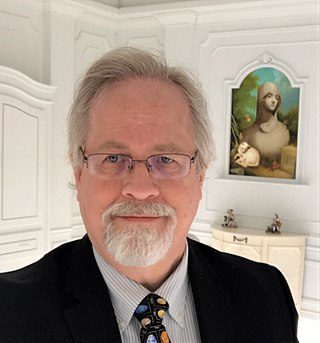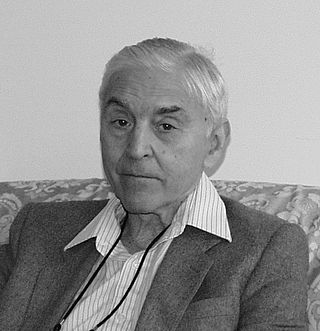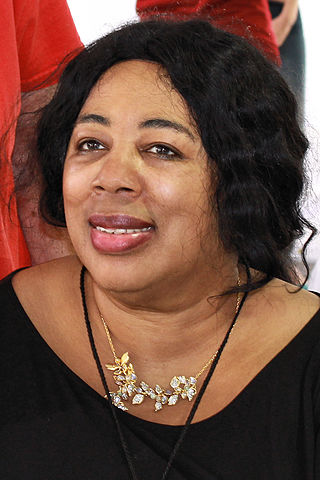Related Research Articles

The American Association for the Advancement of Science (AAAS) is an American international non-profit organization with the stated mission of promoting cooperation among scientists, defending scientific freedom, encouraging scientific responsibility, and supporting scientific education and science outreach for the betterment of all humanity. AAAS was the first permanent organization established to promote science and engineering nationally and to represent the interests of American researchers from across all scientific fields. It is the world's largest general scientific society, with over 120,000 members, and is the publisher of the well-known scientific journal Science.
Carl Zimmer is a popular science writer, blogger, columnist, and journalist who specializes in the topics of evolution, parasites, and heredity. The author of many books, he contributes science essays to publications such as The New York Times, Discover, and National Geographic. He is a fellow at Yale University's Morse College and adjunct professor of molecular biophysics and biochemistry at Yale University. Zimmer also gives frequent lectures and has appeared on many radio shows, including National Public Radio's Radiolab, Fresh Air, and This American Life.

Miles O'Brien is an independent American broadcast news journalist specializing in science, technology, and aerospace who has been serving as national science correspondent for PBS NewsHour since 2010.
The Academy of the Social Sciences in Australia (ASSA) is an independent, non-governmental organisation devoted to the advancement of knowledge and research in the social sciences. It has its origins in the Social Science Research Council of Australia, founded in 1942.

Jameel Sadik "Jim" Al-Khalili is an Iraqi-British theoretical physicist, author and broadcaster. He is professor of theoretical physics and chair in the public engagement in science at the University of Surrey. He is a regular broadcaster and presenter of science programmes on BBC radio and television, and a frequent commentator about science in other British media.

Mary Lee Wheat Gray is an American mathematician, statistician, and lawyer. She is the author of books and papers in the fields of mathematics, mathematics education, computer science, applied statistics, economic equity, discrimination law, and academic freedom. She is currently on the Board of Advisers for POMED and is the chair of the Board of Directors of AMIDEAST.

Alan Boyle is an American journalist specializing in science and technology news. He worked for msnbc.com and NBC News Digital as science editor from 1996 to 2015. In 2015, he became aerospace and science editor for GeekWire. Boyle is also president of the Council for the Advancement of Science Writing.
Nell Greenfieldboyce is an American radio journalist. She is a science and technology reporter for National Public Radio (NPR) and lives in Washington, DC.

Geeta Kapur is a noted Indian art critic, art historian and curator based in New Delhi. She was one of the pioneers of critical art writing in India, and who, as Indian Express noted, has "dominated the field of Indian contemporary art theory for three decades now". Her writings include artists' monographs, exhibition catalogues, books, and sets of widely anthologized essays on art, film, and cultural theory.

William Henry Press is an astrophysicist, theoretical physicist, computer scientist, and computational biologist. He is a member of the U.S. National Academy of Sciences, the American Academy of Arts and Sciences, and the Council on Foreign Relations. In 1989, he was elected a Fellow of the American Physical Society "in recognition of important theoretical contributions to relativistic astrophysics and to cosmology" Other honors include the 1981 Helen B. Warner Prize for Astronomy. Press has been a member of the JASON defense advisory group since 1977 and is a past chair.

David Morrison is an American astronomer, a senior scientist at the Solar System Exploration Research Virtual Institute, at NASA Ames Research Center in Mountain View, California. Morrison is the former director of the Carl Sagan Center for Study of Life in the Universe at the SETI Institute and of the NASA Lunar Science Institute. He is the past Director of Space at NASA Ames. Morrison is credited as a founder of the multi-disciplinary field of astrobiology. Morrison is best known for his work in risk assessment of near Earth objects such as asteroids and comets. Asteroid 2410 Morrison was named in his honor. Morrison is also known for his "Ask an Astrobiologist" series on NASA's website where he provides answers to questions submitted by the public. He has published 12 books and over 150 papers primarily on planetary science, astrobiology and near Earth objects.

Earl Ubell was an innovative science and health reporter, and editor primarily for the New York Herald Tribune and WCBS-TV from the late 1940s to the 1990s.

Harriet A. Washington is an American writer and medical ethicist. She is the author of the book Medical Apartheid, which won the 2007 National Book Critics Circle Award for Nonfiction. She has also written books on environmental racism and the erosion of informed consent in medicine.
Ellen Mosley-Thompson is a glaciologist and climatologist. She is a Distinguished University Professor at Ohio State University and director of their Byrd Polar and Climate Research Center. She is known as a pioneer in the use of ice cores from the Polar Regions for paleoclimatic research and is an influential figure in climate science. She is an elected fellow of the American Association for the Advancement of Science, the American Geophysical Union and an elected member of the National Academy of Sciences.

Edmund Soon-Weng Yong is a British-American science journalist and author. In 2021, he received a Pulitzer Prize for Explanatory Reporting for a series on the COVID-19 pandemic. He is the author of two books: I Contain Multitudes: The Microbes Within Us and a Grander View of Life (2016) and An Immense World: How Animal Senses Reveal the Hidden Realms Around Us (2022).

Ruha Benjamin is a sociologist and a professor in the Department of African American Studies at Princeton University. The primary focus of her work is the relationship between innovation and equity, particularly focusing on the intersection of race, justice and technology. Benjamin is the author of numerous publications, including the books People's Science: Bodies and Rights on the Stem Cell Frontier (2013), Race After Technology: Abolitionist Tools for the New Jim Code (2019) and Viral Justice: How We Grow the World We Want (2022).
The Open Notebook(TON) is a science journalism non-profit organization, online magazine, and publisher. Its purpose is to help science journalists improve their skills. It publishes articles and interviews on the craft of science writing and maintains a database of successful pitch letters to editors. TON also runs a paid fellowship program for early-career science journalists. The Open Notebook is supported by foundation grants and individual donations, and also partners with journalism and science communication organizations.
The Council for the Advancement of Science Writing (CASW) is a global non-profit foundation supporting scientists and journalists. It develops and funds programs to improve writing about science, technology, medicine, and the environment.
Kendra Pierre-Louis is an American climate reporter and journalist. She most recently worked at Gimlet Media as a reporter and producer on the podcast How to Save a Planet, featuring Alex Blumberg and Ayana Elizabeth Johnson.
Barbara J. Culliton is an American science journalist, editor, and college professor. She was previously the news editor at Science, and deputy editor of Nature.
References
- ↑ "Ben Patrusky". Council for the Advancement of Science Writing (casw.org).
- ↑ "From ScienceWriters: CASW salutes Ben Patrusky". National Association of Science Writers (nasw.org).
- ↑ "New Horizons in Science, The Patrusky Lectures". Council for the Advancement of Science Writing (casw.org). (videos of Patrusky Lectures)